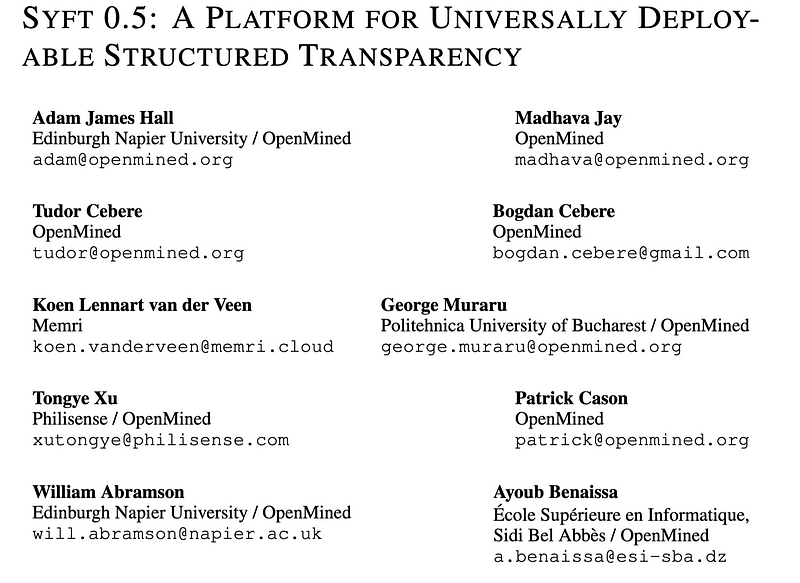Privacy and Machine Learning … is it possible? Meet Syft

Privacy and Machine Learning … Is it possible? Meet Syft … The Platform for Building our Futures
We opened the Blockpass ID Lab less than three years ago. Our focus was — and still is — to build systems around the citizen. These systems should respect the rights of every person to privacy, and in making sure we still embedded trust into every transaction.

Well, we recruited well — and we are recruiting well now — and took on some of the finest PhD students you will find anywhere. These students have grown in confidence, and have supported others. One thing, too, we are good at, is collaborating with others and our lab now hosts collaborations with OpenMined, the EU GLASS project and a forthcoming project on build trusted smart cities.

At our core is trust … human trust and digital trust, and the cross-over between them. But how can we support a future world of machine learning and still respect the rights to privacy? Well, it is not easy, but with new zero-knowledge proof methods, multiparty computation, digital signing, and a range of cryptography methods, and trusted ledgers, we now have a toolkit to build a machine learning system which embedded privacy from their core. This work is highlighted by the lead of two PhD students on the OpenMind project [here]:

For me, the scope of the work is amazing, and where a new framework is proposed for building privacy-preserving ML systems [1]:

The developed platform— PySyft [2]— integrates so many advancements within machine learning, including (Table 1) :
- PSI: An API for PSI (Privacy Set Interconnection) computation.
- VFL: An API for some form of Vertically Federated Machine Learning.
- HFL: An API for some form of Horizontally Federated Machine Learning.
- DP: An API for Differential Privacy.
- HE: An API for Homomorphic Encryption.
- SMPC: An API for Secure Multiparty Computation.
- ZkAC: An API for Zero-knowledge Access Control.
- OPC: An object-level RPC.

Our lab has grown using the Hyperledger infrastructure, but we are growing our research base with Ethereum and Polkadot. Overall, we want to build systems that interconnect with others, as this is one of the great barriers within our existing Web. We now have work, too, developing new health care architecture from Pavlos Papadopoulos, and which integrates Hyperledger into the creation of identities and in the protection of health care data. Also, we have new models from Masoud Barati which implements GDPR compliance within smart contracts.
We must look to the ways that we build digital systems as a legacy approach, and start to build security and privacy into integrated systems at the design stage. Otherwise, we are creating one of the largest spying networks ever created. If you want to come and work with us, please get in contact, and let’s build the future together.
Reference
[1] Syft 0.5: A Platform for Universally Deployable Structured Transparency, Adam James Hall, Madhava Jay, Tudor Cebere, Bogdan Cebere, Koen Lennart van der Veen, George Muraru, Tongye Xu, Patrick Cason, William Abramson, Ayoub Benaissa, Chinmay Shah, Alan Aboudib, Théo Ryffel, Kritika Prakash, Tom Titcombe, Varun Kumar Khare, Maddie Shang, Ionesio Junior, Animesh Gupta, Jason Paumier, Nahua Kang, Vova Manannikov, Andrew Trask, ICLR 2021 Workshop on Distributed and Private Machine Learning (DPML 2021) Subjects: Machine Learning (cs.LG); Cryptography and Security (cs.CR) Cite as: arXiv:2104.12385 [cs.LG]